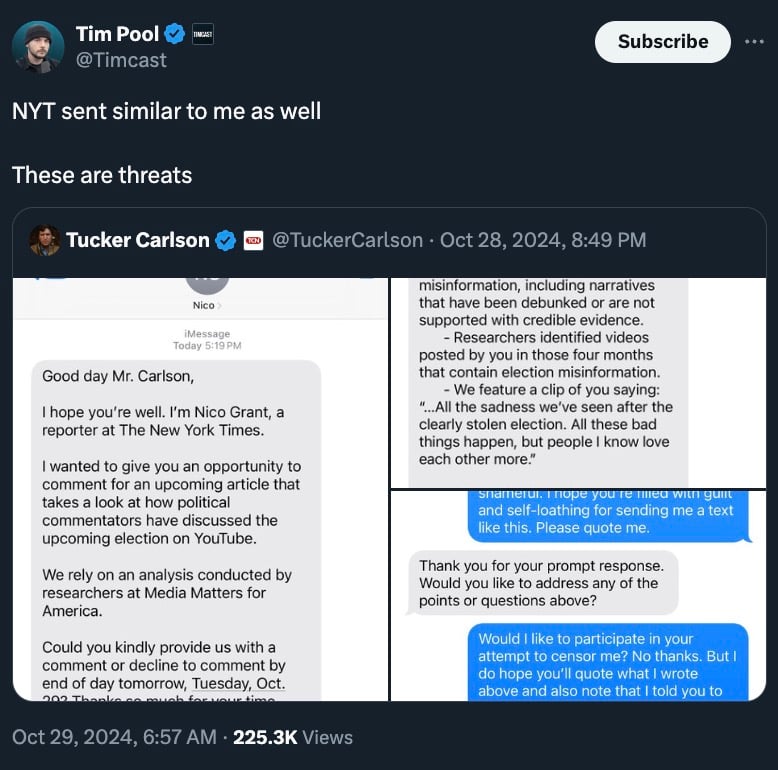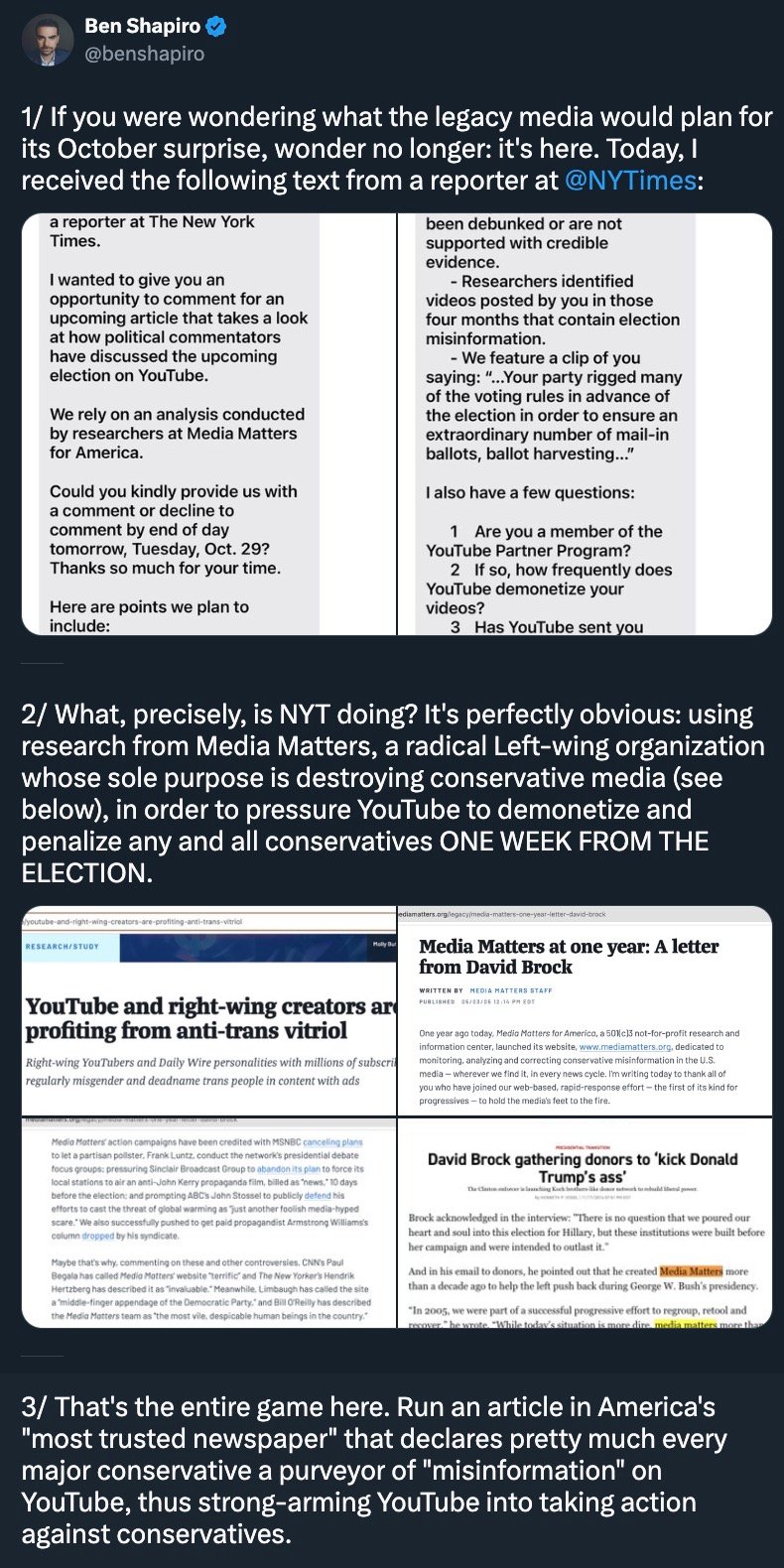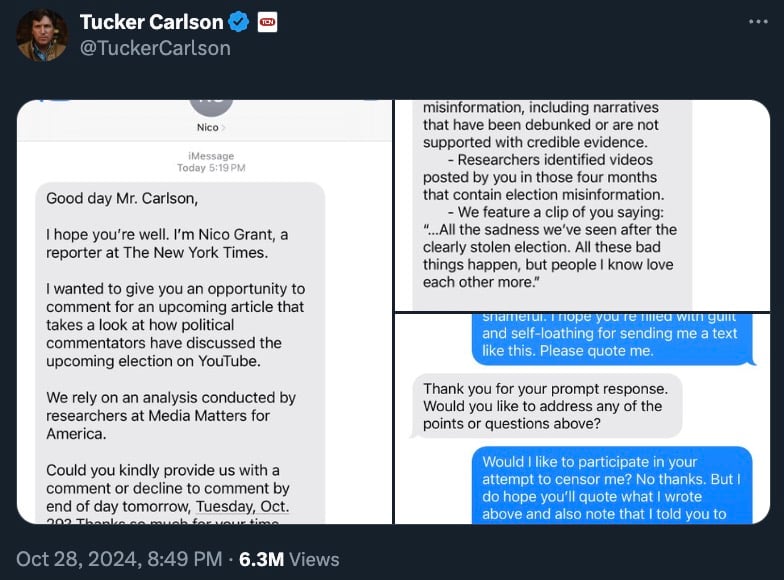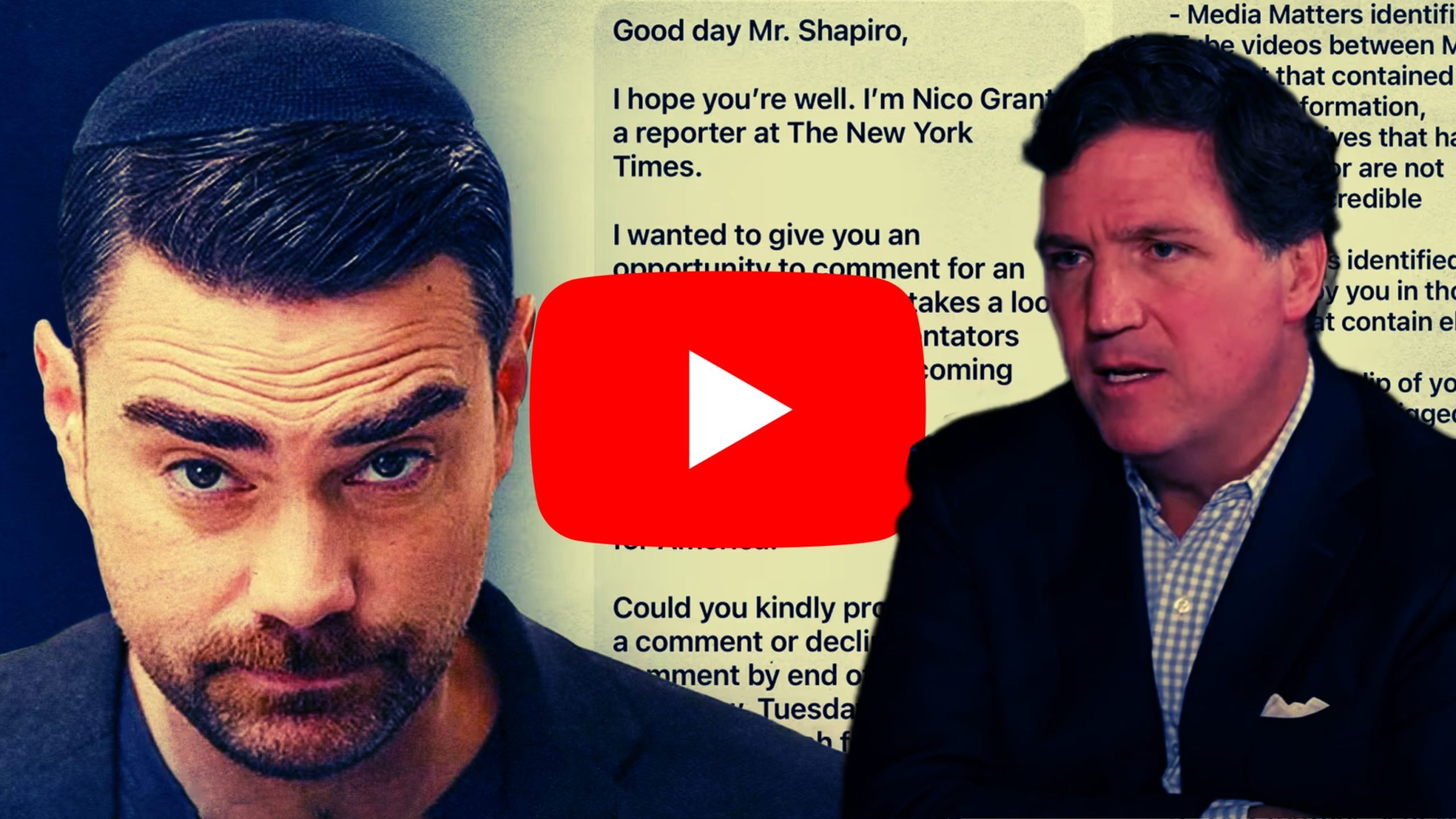On Monday, the New York Times reached out to mostly conservative figures Ben Shapiro and Tucker Carlson, and up to 30 others, seeking their input for an article examining the political discourse surrounding the upcoming elections on YouTube. The request, as detailed by the commentators on the social media platform X, cited an analysis by Media Matters for America, a left-leaning activist group known for its online censorship pressure.
A snippet from the Times’ message to both pundits read:
“I wanted to give you an opportunity to comment on an upcoming article that takes a look at how political commentators have discussed the upcoming elections on YouTube. We rely on an analysis conducted by researchers at Media Matters for America.”
Established in 2004 by journalist and activist David Brock, who is described by Time magazine as “one of the most influential operatives in the Democratic Party,” Media Matters consistently targets what it perceives as conservative misinformation online and in the media.
The organization came into the limelight last year following a defamation lawsuit by Tesla CEO Elon Musk, who alleged that Media Matters had deliberately juxtaposed images of advertiser content on X’s platform with extremist content, seeking to create a false association.

The communication from the Times also mentioned the demonetization of election-related content on YouTube, referring to a study from Media Matters which pointed out 286 videos spreading allegedly false election information.
The implication appears to be that the commentators should be demonetized and punished for their commentary.
Shapiro publicly criticized the Times’ use of Media Matters’ data, expressing skepticism about the motivations behind the article. He argued that the newspaper aimed to influence YouTube into penalizing conservative content creators, particularly as the election neared. He sharply remarked:
“What, precisely, is NYT doing? It’s perfectly obvious: using research from Media Matters, a radical Left-wing organization whose sole purpose is destroying conservative media (see below), in order to pressure YouTube to demonetize and penalize any and all conservatives ONE WEEK FROM THE ELECTION,” adding, “That’s the entire game here. Run an article in America’s ‘most trusted newspaper’ that declares pretty much every major conservative a purveyor of ‘misinformation’ on YouTube, thus strong-arming YouTube into taking action against conservatives.”

Shapiro emphatically concluded his response with, “So, The New York Times wants comment? Here’s my comment: kindly, go f*ck yourself.”
Carlson’s response echoed Shapiro’s discontent. He accused the Times of collaborating with what he termed a “left-wing hate group” to undermine critics of the Democratic Party, stating:
“So the New York Times is working with a left-wing hate group to silence critics of the Democratic Party? Please ask yourself why you’re participating in it,” he said. “This is why you got into journalism? It’s shameful. I hope you’re filled with guilt and self-loathing for sending me a text like this. Please quote me.”

When asked to further comment on the subject, Carlson bluntly refused, further criticizing the approach of the reporter:
“Would I like to participate in your attempt to censor me? No thanks,” Carlson asserted. “But I do hope you’ll quote what I wrote above and also note that I told you to fuck off, which I am now doing. Thanks.”
The New York Times hit piece is expected to drop this week.






















